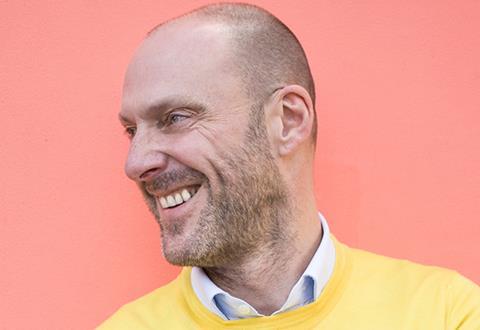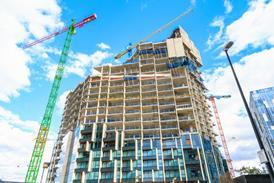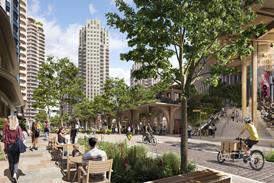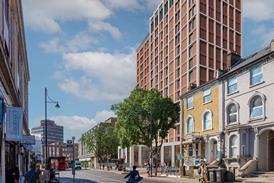We should never forget about the safety and wellbeing of the people who will ultimately live in the places that we create, writes Martyn Evans

Care for the people for whom we build. That’s not a bad maxim by which to guide our lives as shapers of places. But you’d be surprised how often we forget it.
I’ve been absent from these pages for a few months – a lot has happened. We have a new government, Kamala Harris emerged as a surprisingly credible opposition to the Trump juggernaut, and the Grenfell Tower Inquiry published the second and final part of its report. There is something that connects these three seismic events: the role that ordinary people have played in the unfolding stories.
Of course, we’ve yet to see how our new Labour Government will govern. The sweep to power on a wave of revulsion over the exhausted, discredited, and morally bankrupt Tory Government has given them the power of a large majority. The language of their campaign and the media appearances of senior cabinet ministers since have focused heavily on the impact that large majority could have on ordinary people’s quality of life.
There are obviously difficult decisions to make – you might hope that this month’s battles over the Child Benefit Cap and the Winter Fuel Allowance aren’t a foretaste of things to come – but the political conversation feels like night and day compared to what we discussed before the election. Whether you support Labour’s policies or not, you cannot argue that people’s livelihoods have not been front and centre of the political conversation in recent months.
Across the Atlantic, the appearance of Tim Walz on the Democratic ticket seems designed specifically to bring a voice of the ‘ordinary people’ to the campaign. His down-home, Coach Walz narrative is landing positively, and he’s talking to people about the positive change that government can make to their lives. It feels to me like the politics of respect and support, not the politics of anger and discontent.
Thankfully, this kind of behaviour is far from the norm in our industry
And then there’s Grenfell. I’m not going to dissect the implications of the Inquiry report here, except to say that what has surfaced most emotionally and impactfully from its publication is a deeply moving reminder of the stories of the 72 people who lost their lives and the families they left behind. The report is long, forensic, and powerful in its analysis of what went wrong, but what binds together all the stories of negligence, corruption, illegality, and incompetence is the sense that those responsible simply didn’t care enough about the people who lived in the building.
For some involved, the day-to-day experience and safety of the residents of the tower didn’t even cross their minds as they exchanged banter on email about cover-ups and commercial competitiveness. From the local authority (an organisation that exists solely to serve its citizens), to the building management company, the architects, and the cladding manufacturers (caught red-handed in emails), actor after actor in this tragic drama displayed at best indifference and at worst blatant criminal disregard for people’s lives.
If you come to work in our industry believing that your job is merely to design a cladding system, arrange a maintenance programme for an ageing sprinkler system, or deliver the latest quarter’s sales numbers, then somewhere along the line, things are going to go wrong. What we should remember, every day, is that we come to work to make buildings and places where people are going to live their lives. At its most basic, this attitude will be more likely to keep those people safe.
If the representatives of the cladding firms (Email: ‘[people raising concerns] can go f*** themselves’) had been encouraged to understand that, then maybe things might have worked out differently. If the staff of the TMO hadn’t developed a culture that characterised Grenfell residents who raised safety issues as ‘troublemakers’, then maybe the problems would have been identified earlier, fixed, and things might have worked out differently. And if the local authority, whose chief eExecutive was ‘unduly concerned’ about the council’s reputation rather than the care of its citizens, had acted differently, then maybe… things might have worked out differently.
Look where the ‘we just make the cladding, mate’ attitude got us. Look where the ‘our council budget is under more pressure than it’s ever been’ mentality ended up, and imagine how the families of those who lost their lives feel about the stomach-churning circle of blame that’s filled the airwaves following the publication of the report. It could all have been so different.
Thankfully, this kind of behaviour is far from the norm in our industry. Most of us work hard and care very much about what we do, but it doesn’t mean we always get it right. When you go to your next meeting, just try this: take a minute before you dive into your planning discussion, your façade treatment debate, or your cost analysis conversation, and remind each other why you’re having that conversation. Who are you doing this for?
>> Also read: Arb seeking feedback on proposed post-Grenfell code of conduct
Postscript
Martyn Evans is creative director of U&I
















1 Readers' comment